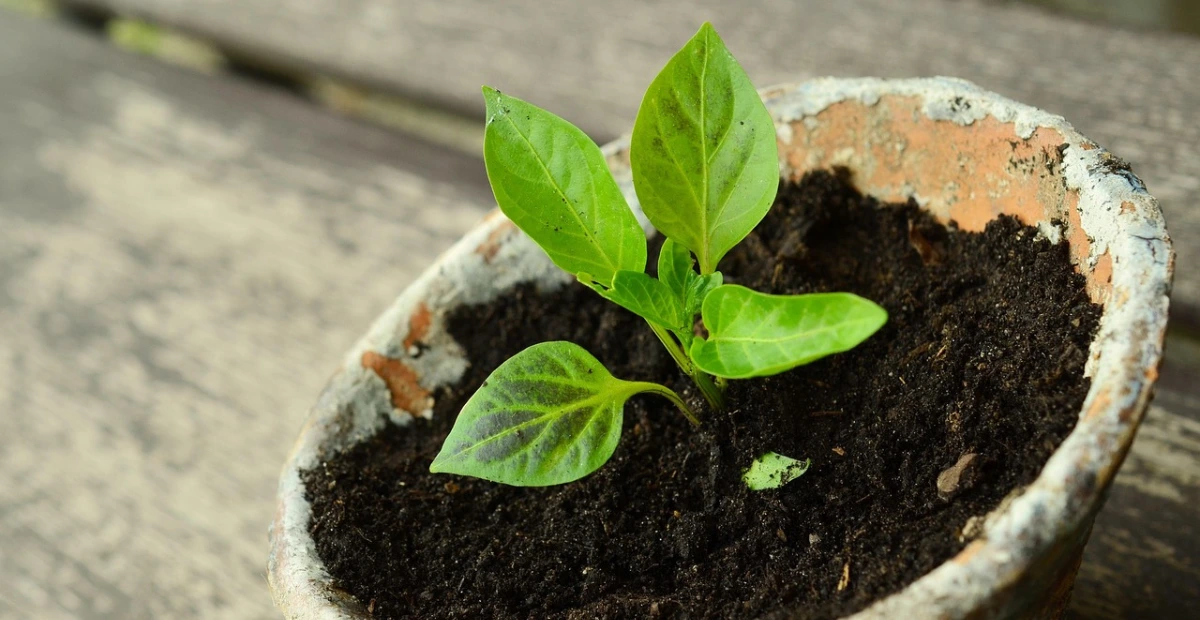Finding the Perfect Green Companion
Imagine walking into your home after a long day. The air feels fresher, your mood lifts, and there’s a certain calm that comes over you. In the corner of your living room, a small plant sits, its green leaves gently waving in the breeze. It’s a small touch, but it transforms the space. Small plants have a way of doing that—making your home feel more alive, more serene, and even more vibrant.
advertisement
If you’re new to plants or are hesitant about adding greenery to your space, you’re not alone. It’s easy to feel overwhelmed by the idea of caring for larger, more demanding plants. But here’s the secret: small plants are the perfect starting point. They’re not just beautiful, they’re practical too, offering a range of benefits you might not have considered.
In this article, we’ll explore the top 6 reasons why small plants are the best choice for any space. From their ability to thrive in tight corners to their minimal maintenance needs, small plants pack a punch. Whether you’re a seasoned plant parent or a complete beginner, these reasons will make you rethink your plant collection—and maybe even start one. Let’s dive in.
Table of Contents
1. Small Plants Are Perfect for Limited Spaces
Making the Most of Tight Areas
One of the main concerns people have when it comes to plants is space. If you live in an apartment, dorm room, or have a small home, it can feel like there’s just no room for greenery. But here’s the good news: small plants thrive in compact spaces. In fact, they’re ideally suited for tight corners, windowsills, and tiny apartments.
advertisement
When you think of adding plants, you might picture large, sprawling green monsters taking over your living room. But small plants, with their petite sizes, can fit almost anywhere. Whether you have a small balcony, a shelf by the window, or even just a countertop, there’s a small plant that will be perfect for it.
Why Small Plants Work in Limited Spaces
- Versatility: Small plants can be placed almost anywhere—on your windowsill, on a small table, or even hanging from the ceiling.
- Compact Design: Their small footprint means they won’t overcrowd your space or make it feel cluttered.
- Decorative: They enhance your decor without overwhelming it. Whether you prefer modern, minimalist, or bohemian styles, small plants fit seamlessly into any interior.
Popular Small Plants for Limited Spaces
- Succulents: Their minimal watering needs and low-maintenance nature make them perfect for compact living spaces.
- Cacti: These hardy plants thrive in small pots and need very little care.
- Air Plants: No soil required, these little plants are great for creative displays in small spaces.
2. Low-Maintenance and Easy to Care For
Great for Busy People or Beginners
If you’ve ever killed a plant—or several—then you understand the fear that comes with owning greenery. The good news? Small plants are incredibly forgiving and easy to care for. Their low-maintenance nature makes them the perfect option for people who are new to plant care or those who simply don’t have a lot of time to dedicate to their plants.
Unlike larger plants, which often require a more complex care routine, small plants tend to be much more laid-back. Most small plants are drought-resistant, which means they don’t need to be watered as often. Additionally, they can survive in a variety of light conditions, which makes them extremely adaptable.
advertisement
How to Care for Small Plants
- Watering: Most small plants, especially succulents and cacti, only need to be watered once every 7 to 10 days. It’s always best to let the soil dry out between waterings.
- Light: Many small plants can thrive in indirect light. If you’re in a room with lots of natural light, small plants will soak it up; but they also do well in areas that aren’t directly in the sun.
- Pruning: Small plants need minimal maintenance when it comes to pruning. A quick trim every once in a while is all they require.
Why They’re Ideal for Beginners
Small plants don’t require an expert’s touch. For someone just starting their plant journey, this is a huge benefit. You don’t have to worry about getting every little detail right. You can start with just a couple of small plants and expand your collection as you gain confidence in your plant care skills.
3. Health Benefits Without the Commitment
More Than Just Decor
It’s well known that plants can improve the atmosphere in your home, but did you know they also contribute to your overall well-being? Small plants, in particular, offer a range of health benefits that can help boost your mood, productivity, and even your health.
How Small Plants Improve Your Health
- Air Purification: Small plants are great at filtering the air by absorbing harmful toxins like formaldehyde, benzene, and trichloroethylene. This is especially important in closed spaces where air circulation is limited.
- Stress Reduction: Studies have shown that being around plants can reduce stress and anxiety. The simple act of caring for a plant can help improve your mental well-being.
- Productivity Boost: Having plants around your workspace can help increase productivity and concentration. Studies have found that even just looking at a plant can make you feel more relaxed and focused.
advertisement
Small Plants Make Your Home Healthier
- Better Sleep: Some small plants, like lavender and jasmine, have calming scents that can help you sleep better.
- Improved Air Quality: With their ability to remove toxins, small plants can create a healthier living environment by improving indoor air quality.
4. Affordable and Accessible
Get Green on a Budget
For many people, cost is a significant factor when considering adding plants to their home. Larger plants, decorative pots, and special care supplies can quickly add up, making it seem like keeping plants might not be affordable. However, small plants are often a budget-friendly option that can provide all the benefits of a larger plant at a fraction of the cost.
Why Small Plants Are Budget-Friendly
- Low Purchase Cost: Many small plants are relatively inexpensive compared to larger plants. You can often find them at your local nursery or even online for under $20.
- Minimal Maintenance Costs: Small plants don’t require expensive fertilizers, pots, or special soil. A simple pot, some quality soil, and basic care will usually suffice.
- Quick Growth: Small plants often grow faster than larger ones, so you’ll get to enjoy their beauty sooner.
Where to Find Affordable Small Plants
- Local Nurseries: Your local plant shop is a great place to find a variety of small plants.
- Online Stores: Many online retailers offer affordable small plants and even subscriptions for regular plant deliveries.
- Home Improvement Stores: Big-box stores like Home Depot or Lowe’s often have a great selection of small plants for a low cost.
5. Versatility in Decorating Any Room
Enhance Your Space with Minimal Effort
advertisement
Small plants are incredibly versatile when it comes to decorating. They can be used in virtually every room of your house, and they work well with a variety of design styles. Whether you have a minimalist aesthetic, a boho-inspired space, or a modern design, small plants can complement and elevate the overall look of your home.
Where to Place Small Plants for Maximum Impact
- Windowsills: Small plants love sunlight, so placing them on your windowsill is a great way to make use of available space while keeping them happy.
- Kitchen Counter: Add a small plant like a basil or thyme plant to your kitchen counter to infuse some life into your cooking space.
- Bathroom: Bathrooms tend to be humid, which is perfect for small plants like ferns and peace lilies.
- Desks and Workspaces: A small plant can help create a calming atmosphere in your home office or study area.
Small Plants for Different Design Styles
- Modern/Minimalist: Opt for sleek plants like succulents or cacti in simple pots.
- Boho: Use hanging plants like ivy or trailing pothos to create a relaxed, earthy vibe.
- Industrial: A small rubber plant or snake plant in a rustic pot will complement an industrial-style home perfectly.
6. A Gateway to Larger Plant Collections
Start Small, Think Big
If you’re new to plants, starting with small ones is a great way to test the waters. As you become more comfortable with plant care, you can begin expanding your collection with larger, more complex plants. Small plants provide a great foundation for your future plant collection and allow you to experiment with different types of plants.
advertisement
Why Small Plants Are a Great Starting Point
- Low Commitment: They allow you to dip your toes into the world of plant care without feeling overwhelmed.
- Practice Makes Perfect: As you care for small plants, you’ll gain confidence and learn the ins and outs of plant care. This will help you when it’s time to take on larger plants.
- More Variety: Small plants come in all shapes, sizes, and colors, giving you a chance to explore a wide range of plant types.
How to Transition to Larger Plants
- Start with one or two larger plants after gaining confidence with small ones.
- Research the needs of larger plants before bringing them home.
- Make sure you have enough space for larger plants to grow comfortably.
Conclusion: Embrace the Power of Small Plants
Small plants are more than just decorative items—they’re an investment in your home, health, and well-being. Their affordability, versatility, and low-maintenance nature make them the perfect choice for anyone looking to add some greenery to their life without overwhelming their space. Whether you’re starting your plant journey or looking to fill small areas with beauty, small plants are the way to go.
Ready to brighten your space? Start with a few small plants and watch your home come to life.
Frequently Asked Questions (FAQ)
Q: What are the best small plants for beginners?
Small plants like snake plants, pothos, and succulents are easy to care for and thrive in a variety of conditions, making them ideal for beginners.
Q: How often should I water my small plants?
Most small plants only need to be watered once a week, but always check the soil to ensure it’s dry before watering again.
Q: Can small plants survive in low light?
Yes! Many small plants, such as ZZ plants and snake plants, thrive in low-light conditions, making them great choices for rooms without direct sunlight.
Q: Are small plants suitable for apartments?
Absolutely! Small plants are perfect for apartments, as they don’t take up much space and can thrive in confined areas like windowsills or bookshelves.
Incorporating small plants into your living space offers benefits that go beyond just aesthetic appeal. They can improve your mood, purify the air, and even boost productivity—all while requiring minimal maintenance. So, what are you waiting for? Add a little greenery to your life today!


